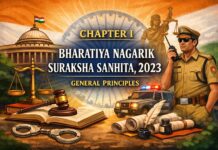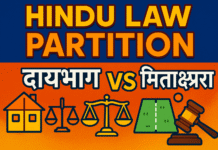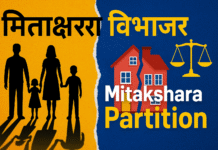Whether ceremonies are necessary for a Hindu marriage ? When is a marriage considered to be complete? Is any ceremony necessary in case of a widow’s marriage ?
Ans. Ceremonies for a Hindu Marriage.—Under the ancient Hindu Law all the necessary ceremonies which were prevalent in any community whether prescribed by custom or by Shastras, must be observed : “The status of husband and wife is constituted by the performance of the marriage rites, whether prescribed by the Shasiras or by custom”—Mayne. Section 7 of the Hindu Marriage Act, 1951, has also prescribed for the observance of necessary ceremonies. It has rendered the performance of the ceremonies absolutely, necessary. The Supreme Court in Shanker non Rac Lokhande v. The State, (AIR 1955 S. C. 1664), clearly laid down that if the necessary ceremonies are not observed the marriage would become ineffective. A marriage in absence of performance of religious ceremonies will not be recognised in law. Section 7 of the Hindu Marriage Act, 1955, says that: “A Hindu marriage may be solemnized in accordance with the customary rites and ceremonies of either party thereto”. Thus the Act, as referred above, does not prescribe any special ceremony for marriage, but leaves it to the discretion of the parties to follow any customary rites or ceremonies which are prevalent either amongst the bridegroom’s community or bride’s community. Under the textual law there re three essential ceremonies to the validity of Hindus marriage which were: (i) invocation before the sacred fire, and (ii) ‘saptapadi i.e., the taking of seven steps by the bridegroom and the bride jointly before the sacred fire. (iii)panigrahnna ceremony. When marriage completes.—Section 7 (2) of the Hindu Marriage Act lays down—”Where such rites and ceremonies include the Saptapadi (that is, the taking of seven steps by the bridegroom and the bride jointly before the sacred fire), the marriage becomes binding when the seventh step is taken”. Hence saptapadi seems necessary even for a widow’s marriage. If the ceremonies of either party do not include .saptapadi, then any other ceremony which according to custom of the community gives the binding finality to the marriage has to be performed, and if performed, the marriage becomes final and binding on the parties to the marriage and on everybody else. Marriages celebrated without the performance of the Vivah home and saptapadi are valid in Redd i community of the Telengana Ravindranath v. State, A.I.R. 1969 Cal. 551.






![Maneka Gandhi v. Union of India [1978] 2 SCR 621: A Watershed Moment in Indian Constitutional Jurisprudence](https://www.infipark.com/articles/wp-content/uploads/2026/02/Image-Feb-18-2026-10_47_59-AM-218x150.jpg)







